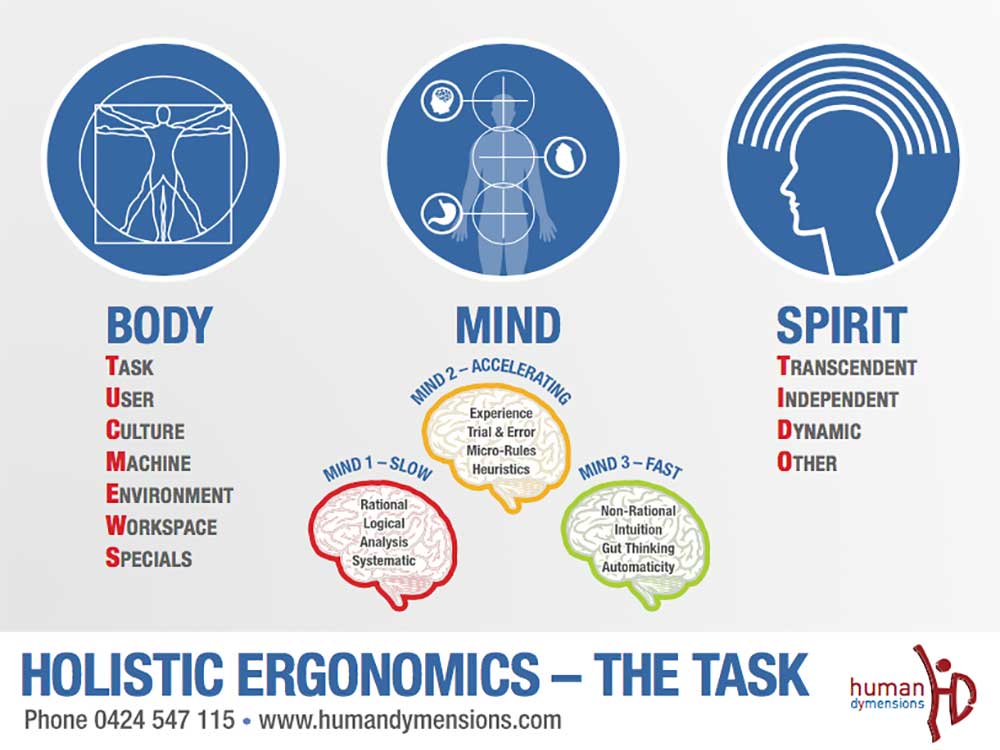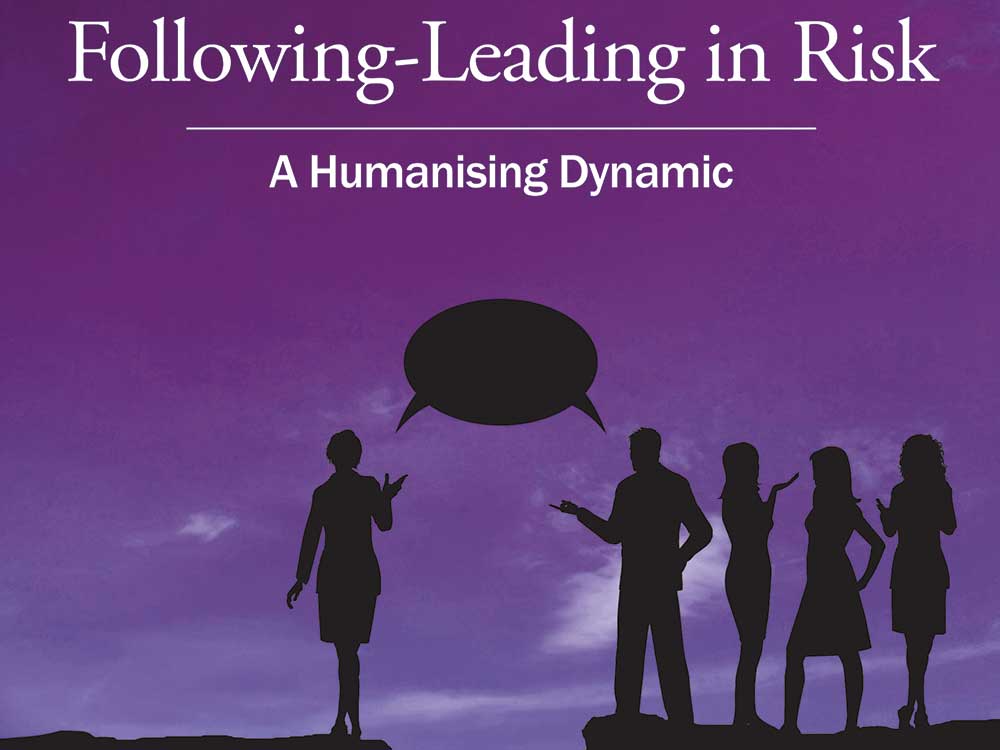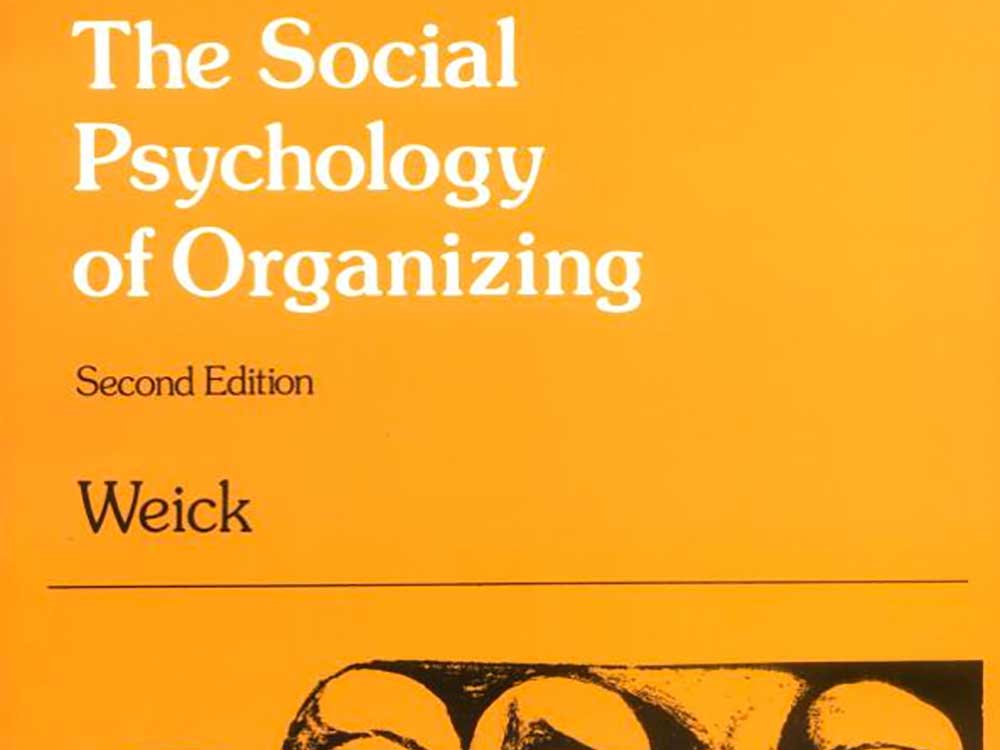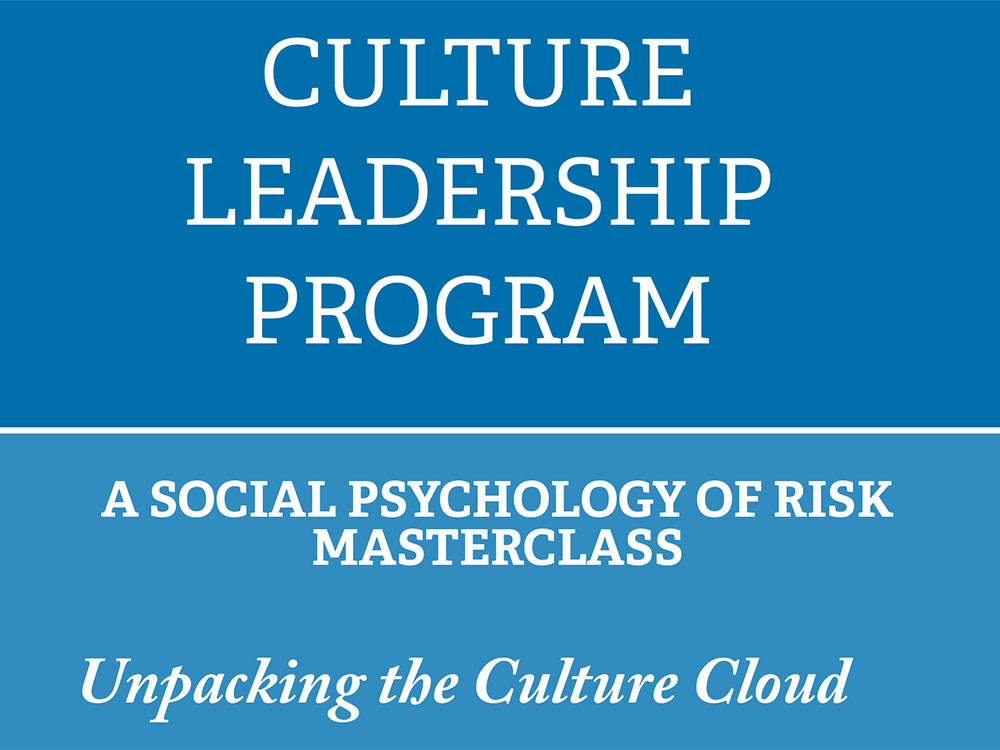
Holistic Ergonomics Unit 6 – Overseas Online
23 November 2017
Leadership and the Social Psychology of Risk. Unit 4 – Overseas Online
25 November 2017Description
The idea of the High Reliability Organisation (HRO) was developed by Rochlin, Roberts, Consolini and, LaPorte (1987, 1991). Their research was inspired in part by naval operations, they wondered why some organisations were failure resistant and why other organisations failed. Organising is described by Weick (1979, p. 3) as: ‘consensually validated grammar for reducing equivocality by means of sensible interlocking behaviours’. This quote is the critical foundation for the unit.
This unit takes a focus on HROs through the work of Prof, Karl. E. Weick. Weick is of most interest because of his two constructs:
- Organisational Sensemaking and,
- Collective Mindfulness
These are the focus of the unit and the assessment.
In some ways Weick’s work precedes that of other HRO researchers in that he published The Social Psychology of Organizing in 1979. Whilst at this early stage he was yet to formulate the two constructs, it is his best work on a theory of organizing from a social psychological perspective. In this book Weick introduces the reader to:
- The problem of equivocality
- Complexity in organizing
- Adaptive systems and adaptability
- Social contract
- Consensus, Resilience
- Trade-offs and by-products
- Double interacts and causal loop mapping
All of these concepts about organising are critical for understanding HROs.
Required Texts
Weick, K., (1979) Social Psychology of Organizing. McGraw Hill, New York.
Weick, K., and Sutcliffe, K., (2001a) Managing the Unexpected. Jossey-Bass, San Francisco.
Both are provided.
Videos – Lectures
The Social Psychology and High Reliability Organising videos are at https://vimeo.com/album/3949912
Password to access the videos: Provided on registration.
Please watch the videos and reflect on any key issues in your journal. Any questions can be covered by email.
Learning Outcomes
On successful completion of this unit, Participants should be able to:
- Understand the implications of a social psychology of risk for social organising
- Identify contemporary organisation theories with relevance to the social psychology of risk
- Investigate social psychology research and it’s implications for communication, collaboration, organising and decision making
- Utilise semiotics and discourse analysis for understanding of ‘collective mindfulness’ and ‘organisational sensemaking’ in risk
- Recognise the significance of organisational sensemaking and collective mindfulness to the management of risk
- Develop methods for assessing organisational sensemaking and collective mindfulness in an organisation (case study)
Content
The content for the unit in the following questions:
- What is organising? What does it create? Why organise? (equivocality)
- How do I know what I believe until I see what I do?
- How can I know what I think, until I see what I say?
- Understanding backward (unlimited hindsight) whilst living forward (limited foresight)
- Is there a cookbook? Why do you want a cookbook?
- What does it mean to be collectively mindful? and to Sensemake?
- What does it mean to be fully human? Why do some want to be superhuman?
- How much can we control? Why do we want to control?
- What is the paradox of organising?
- How does leading and following manifest in a HRO?
- What is meeting? Why respectful interactions?
- Why trade-offs and by-products?
- Why is learning and risk looped? (double interacts)
- Why is enactment so central for a HRO?
- How can the HRO framework and principles be applied to organisations and Risk?
- Are heuristics logical or ecological? What of Occam’s Razor?
- How does a HRO discern risk?
- What of bounded rationality and optimisation?
- What of automaticity and satisfying?
- How can Weick’s constructs be used to assess organisational well being and health?
Assessment
Case Study of an organisational activity, project or task using Weick’s Organisational Sensemaking and Collective Mindfulness constructs.
The assignment is comprised of a report (2500 words) on an activity or small project in an organization with which you are familiar. In this report you will use Weick’s constructs to analyse the nature and character of the activity. This is not a comparative report nor does the activity have to be successful. The purpose is to show that you can use Weick’s constructs to evaluate organising.
The table at the close of this unit outline provides a useful tool to get started.
Texts and references
Required texts
Long, R., (2012) Risk Makes Sense, Human Judgement and Risk. Scotoma Press, Canberra.
Weick, K., (1979) The Social Psychology of Organizing. McGraw Hill, New York.
Recommended references
Weick, K., (1995) Sensemaking in Organisations. Sage Publications, London.
Weick, K., and Sutcliffe, K., (2001a) Managing the Unexpected. Jossey-Bass, San Francisco.
Weick, K., (2001) Making Sense of the Organisation Vol. 1. Blackwell, London.
Weick, K., (2001b) Making Sense of the Organisation Vol. 2. Blackwell, Oxford.
Further references
Amalberti, R., (2013) Navigating Safety, Necessary Compromises and Trade Offs – Theory and Practice. Springer, New York.
Argyris, C., and Schon, D., (1996) Organisational Learning II, Theory, Method and Practice. Addison Wesley, London.
Aronson, E., (2008) The Social Animal. Worth Publishers, New York.
Axelrod, R., and Cohen, M., (2000) Harnessing Complexity. Basic Books, New York.
Brown, V., Harris, J., and Russell, J., (2010) Tackling Wicked Problems Through Transdisciplinary Imagination. Earthscan, London.
Caldini, R., (2011) Influence, Science and Practice. Peason, Boston.
Gigerenzer, G., (2000) Adaptive Thinking, rationality in the Real World. Oxford University Press, London.
Gigerenzer, G., (2001) Bounded Rationality, The Adaptive Toolbox. MIT Press, London.
Gigerenzer, G., (2002) Calculated Risks. Simon and Schuster, New York
Gigerenzer, G., (2007) Gut Feelings: The Intelligence of the Unconscious. Viking, New York.
Gigerenzer, G., (2014) Risk Savvy, How to Make Good Decisions. Viking. New York.
Higgins, E. T., (2012) Beyond Pleasure and Pain, How Motivation Works. Oxford University Press, London.
Klein, G., (2003) The Power of Intuition. Doubleday, New York.
LaPorte, T. R., & Consolini, P. M. (1991). Working in Practice but not in Theory: Theoretical Challenges of High-Reliability Organizations. Journal of public administration research and theory, 1, 19–47.
Mitroff, I., (2001) Managing Crises Before They Happen. Amacom, New York.
Mitroff, I., (2004) Crisis Leadership: Planning for the Unthinkable. Wiley, New York.
Mitroff, I., (2005) Why Some Companies Emerge Stronger and Better from a Crisis. Amacom, New York.
Moskowitz, G., and Grant, H., (eds.) (2009) The Psychology of Goals .The Guilford Press, New York.
Noth, W., (1995) Handbook of Semiotics. Indiana University Press, Indianapolis.
Raynor, M., (2007) The Strategy Paradox, Why Committing to Success Leads to Failure. Doubleday, New York.
Reich, J., Zautra, A., and Hall, J., (eds.) (2010) Handbook of Adult Resilience. Guilford Press, New York.
Rochlin, G. I., LaPorte, T. R., & Roberts, K. H. (1987) The self-designing high- reliability organization: aircraft carrier flight operations at sea. Naval War College Review Autumn 1987.
Rochlin, G. I. (1993). Defining high-reliability organizations in practice: A taxonomic prolegomenon. In K. H. Roberts (Ed.), New challenges to understanding organizations (pp. 11 – 32 ). Macmillan, New York.
Rochlin , G. I. ( 1999 ) Safe operation as a social construct. Ergonomics, 42,1549–1560.
Sloan, J., (2006) Learning to Think Strategically. Elsevier, New York.
Taleb, N., (2012) Antifragile. Allen Lane, London.
Tannen, D., (1998) Conversational Style, Analysing Talk Among Friends. Oxford, London.
Watt, D., (2011) Everything is Obvious, How Common Sense fails Us. Crown Business, New York.
Weick , K. E. ( 1988 ) . Enacted sensemaking in crisis situations . Journal of management studies, 25(4), 305–317.
Weick, K. E. (1993). The collapse of sensemaking in organizations: The Mann Gulch disaster. Administrative science quarterly, 38(4), 628–652.
Weick, K. E., Sutcliffe, K. M., & Obstfeld, D. (1999). Organizing for high reliability: Processes of collective mindfulness. Research in organizational behavior, 21, 13–81.
Weick, K., (1979) Social Psychology of Organizing. McGraw Hill, New York.
Weick, K., (1995) Sensemaking in Organisations. Sage Publications, London.
Weick, K., and Sutcliffe, K., (2001a) Managing the Unexpected. Jossey-Bass, San Francisco.
Weick, K., (2001) Making Sense of the Organisation Vol. 1. Blackwell, London.
Weick, K., (2001b) Making Sense of the Organisation Vol. 2. Blackwell, Oxford.
Weick’s Organisational Sensemaking and Collective Mindfulness by WorkSpace, HeadSpace and GroupSpace
You must be logged in to post a review.




Reviews
There are no reviews yet.